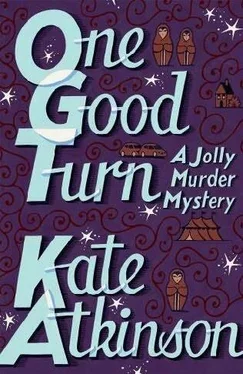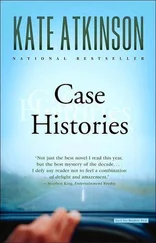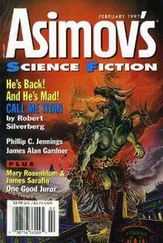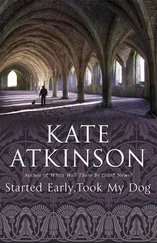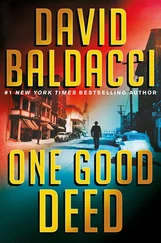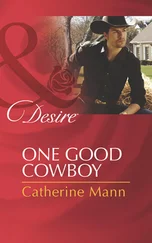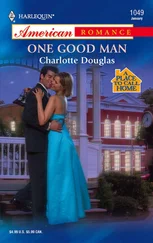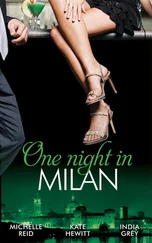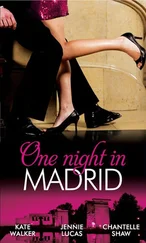Kate Atkinson - One Good Turn
Здесь есть возможность читать онлайн «Kate Atkinson - One Good Turn» весь текст электронной книги совершенно бесплатно (целиком полную версию без сокращений). В некоторых случаях можно слушать аудио, скачать через торрент в формате fb2 и присутствует краткое содержание. Жанр: Триллер, на английском языке. Описание произведения, (предисловие) а так же отзывы посетителей доступны на портале библиотеки ЛибКат.
- Название:One Good Turn
- Автор:
- Жанр:
- Год:неизвестен
- ISBN:нет данных
- Рейтинг книги:4 / 5. Голосов: 2
-
Избранное:Добавить в избранное
- Отзывы:
-
Ваша оценка:
- 80
- 1
- 2
- 3
- 4
- 5
One Good Turn: краткое содержание, описание и аннотация
Предлагаем к чтению аннотацию, описание, краткое содержание или предисловие (зависит от того, что написал сам автор книги «One Good Turn»). Если вы не нашли необходимую информацию о книге — напишите в комментариях, мы постараемся отыскать её.
One Good Turn — читать онлайн бесплатно полную книгу (весь текст) целиком
Ниже представлен текст книги, разбитый по страницам. Система сохранения места последней прочитанной страницы, позволяет с удобством читать онлайн бесплатно книгу «One Good Turn», без необходимости каждый раз заново искать на чём Вы остановились. Поставьте закладку, и сможете в любой момент перейти на страницу, на которой закончили чтение.
Интервал:
Закладка:
Juggling Boy said nothing but moved slowly to the side, his eyes never leaving the oranges. Jackson bumped into him as he walked past, catching his elbow, and the oranges went rolling in three different directions across the grass. “Sorry about that,” Jackson said, unable to keep the pleasure off his face.
“Wanker,” the boy muttered after him. Jackson turned on his heel and marched back, planting himself on the path. “What did you say?” he asked, sticking his face menacingly near the boy’s. Adrenaline chased the bile in his bloodstream, a little voice in his head accompanied it, saying, Bring it on . He had an uncomfortable flashback to last night, to Terence Smith’s jeering, ugly features.
The boy took a step back in alarm and whined, “Nothing, man. I didn’t say anything.” He looked cowed and sullen, and Jackson realized that the boy couldn’t be more than sixteen or sev-enteen, almost a child (although Jackson had joined the army at that age, a boy soldier who thought he was a real man). He remembered Terence Smith yesterday, stepping out of the car with his baseball bat swinging in anger. This is what road rage felt like. Path rage. Jackson laughed, a sudden unexpected harshness that made the boy flinch. Sheepishly, Jackson chased after the oranges, picked them up, and handed them back. The boy took them gingerly, as if they might be hand grenades. “Sorry,” Jackson said, and he walked away quickly to spare the boy any more humiliation. You bastard , Jackson said to himself, you total fucking bastard . He was turning into his enemy, his own worst version of himself.
25
Martin filled up on petrol at a garage on Leith Walk. He had been relieved to find his car still waiting for him like a patient pony in the corral-his brain was in some kind of nervy overdrive, jumping terrible metaphorical somersaults. It took him half an hour to find the car, as Richard Mott’s instructions weren’t exactly helpful- “Your car’s parked in front of Macbet on Leith Walk. Cheers, R,” scrawled on the envelope that his ticket had been in yesterday. When he found the car, it was plastered with parking tickets.
At the petrol pump next to his, a small boy in the backseat of a Toyota was making faces at him, horrible, imbecilic faces that made Martin speculate the child was handicapped in some way. The mother was in the shop, paying for her petrol, and Martin wondered if he would dare to leave a child alone in a car. If the car was locked, it might catch fire (all that petrol), and the child would burn to death. If it wasn’t locked, someone might steal the child or it might slip out of the car and run onto the road and be crushed under the wheels of a lorry. One of the compensations for not having a child of his own was that he wasn’t responsible for making life-and-death decisions on its behalf.
If you were a woman and you couldn’t find a partner, you could always go to a sperm bank, but what could a man do? Apart from buying a wife, he supposed you could pay a woman to bear your baby, but it was still a commercial transaction, and how would you ever explain that to a child when it asked who its mother was? He supposed you could lie, but you always got caught out in lies, even if it was only by yourself.
Perhaps he should have become a monk, at least then he would have had a social life. Brother Martin. He would perhaps run the infirmary, wandering in the walled herb garden, tending the me-dicinal plants, the bees humming gently, the tolling of a bell somewhere, the scent of lavender and rosemary in the warm air. From the chapel wafted the soothing sounds of plainsong or Gregorian chant-were they the same thing, and if not, what was the differ-ence between them? The simple meals in the refectory, bread and soup, sweet apples and plums from the monastery’s own orchards. On Fridays, a fat carp from the fishponds. Hurrying through the cold cloisters in winter, his breath like white clouds in the icy air of the chapter house. Of course, he was thinking of a pre-Reformation monastic life, wasn’t he? Another time, another place, a hybrid of the Cadfael novels and the “Eve of St. Agnes” rather than a historic reality. And anyway, there was no such thing as “historic reality,” reality was this nanosecond, right now, not even a breath but an atom of a breath, the littlest, littlest thing. Before and after didn’t exist. Everyone was clinging on by their finger-nails to the thread from which they were hanging.
His nameless, imaginary wife, a woman who had come with no price attached (although it was above that of rubies), lived with him in a cottage that was in a perfect village from which you could get up to London in an hour if you so wished. The cottage they lived in was chintzy and had beams and a lovely garden and was very like Mrs. Miniver’s. Martin had recently watched the sequel to Mrs. Miniver - The Miniver Story -on early morning TCM and was still nursing an outrage that they had killed off poor Greer Garson for no reason whatsoever , as if there were no further use for her in the postwar world. Which there wasn’t, of course, but that wasn’t the point. And she hadn’t even fought back against her un-named (but obviously cancer) illness, her only concern was to make her death no bother to anyone else. No sickness, vomiting, blood, and pus, no brain matter spattered round her living room, no raging against the dying of the light, she just kissed her hus-band good-bye, went up the stairs, and closed her bedroom door. Death wasn’t like that. Death happened when you least expected it. It was an argument in the street, it was a crazy Russian girl opening her mouth to scream. The littlest thing.
His noble postwar wife knew, Miniver-like, how to mend and make-do, she knew how to soothe troubled brows and how to lift drooping spirits, she had known tragedy but she was stoic in the face of it. She smelled of lilies of the valley.
It was usually early spring, the sky pale and austere, the wind sharp, new daffodil shoots spearing their way out of their earth silos in the garden outside. It was also nearly always Sunday morning for some reason (probably to do with spending weekends in a boarding school). A leg of lamb (no animal was harmed in the making of this fantasy) was sizzling in the old cream Aga in the kitchen. Martin had already chopped mint, grown in their own garden. They sat in the living room, in armchairs covered in William Morris’s “StrawberryThief ”fabric, and each drank a small sherry while listening to a recording of the Goldberg Variations .This woman with no name harmoniously shared his taste in all music, poetry, drama. After they had eaten their lamb (with gravy and peas and roast potatoes), they had a homemade custard tart-a trembling pale yellow with a freckling of nutmeg. Then they did the washing up together at the old-fashioned porcelain sink. She washed, he dried, Peter/David put away (“The serving spoons go in this drawer, darling”) . And then they shook the crumbs from the tablecloth and went for a walk, naming the birds and the early spring flowers, climbing over stiles, splashing through puddles. Laughing. They should have a dog, a friendly terrier full of vim. A boy’s best friend. When they came home, flushed and fit, they would drink tea and eat something homemade and delicious from the cake-tin.
In the evening they made sandwiches from the leftover lamb and did a jigsaw together or listened to the radio, and after Peter/David was in bed they each read their books, or they played a duet together, her on the piano, him on the oboe. To his ever-lasting sorrow he had never learned a musical instrument, but in his imagination he was proficient, occasionally inspired. She did a lot of knitting-Peter/David’s Fair Isle sweaters and rather effeminate cardigans for Martin. In winter they sat by a roaring coal fire, sometimes Martin would toast pikelets or teacakes on a brass toasting fork. He liked to read poetry to her occasionally, nothing too modern.
Читать дальшеИнтервал:
Закладка:
Похожие книги на «One Good Turn»
Представляем Вашему вниманию похожие книги на «One Good Turn» списком для выбора. Мы отобрали схожую по названию и смыслу литературу в надежде предоставить читателям больше вариантов отыскать новые, интересные, ещё непрочитанные произведения.
Обсуждение, отзывы о книге «One Good Turn» и просто собственные мнения читателей. Оставьте ваши комментарии, напишите, что Вы думаете о произведении, его смысле или главных героях. Укажите что конкретно понравилось, а что нет, и почему Вы так считаете.
